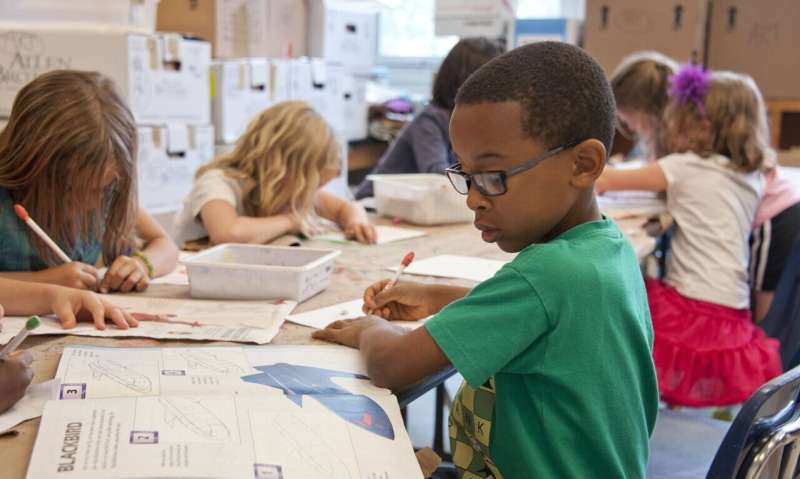Credit: Unsplash/CC0 Public Domain
Reopening Florida elementary and high schools in September was followed by increased COVID-19 infections, according to data analyzed by Ben-Gurion University of the Negev, Harvard Medical School and Tel Aviv University researchers.
The findings were just published in Archives of Disease in Childhood.
Florida is one of the few states that provides incidence of infections by exact age and county.
Comparing schools that reopened with those that remained closured, the researchers discovered infections had risen nearly 30 percent in high school children ages 14-17. The increase was lower—around 20 percent—in infection rates among the elementary school children ages 6-13.
Study lead author Oren Miron, a Ph.D. student in the BGU Department of Health Systems Management tracked data from 10 days prior to 20 days after reopening. He is a student of Prof. Davidovitch who heads the department and is a member of the team of experts advising the Israeli government on its COVID-19 policy.
"Our analysis has implications for countries trying to determine whether to keep physical schools open as they battle rising infection rates," Miron says. "Vaccines will not be given to children initially, so managing infection rates through temporary remote learning is of paramount importance."
"The education system plays a critical role in children's cognitive and emotional development," says Prof. Davidovitch. "Therefore, the required resources should be invested in the system during the difficult times in which we find ourselves."
More information: Oren Miron et al, COVID-19 infections following physical school reopening, Archives of Disease in Childhood (2020). DOI: 10.1136/archdischild-2020-321018
Journal information: Archives of Disease in Childhood























